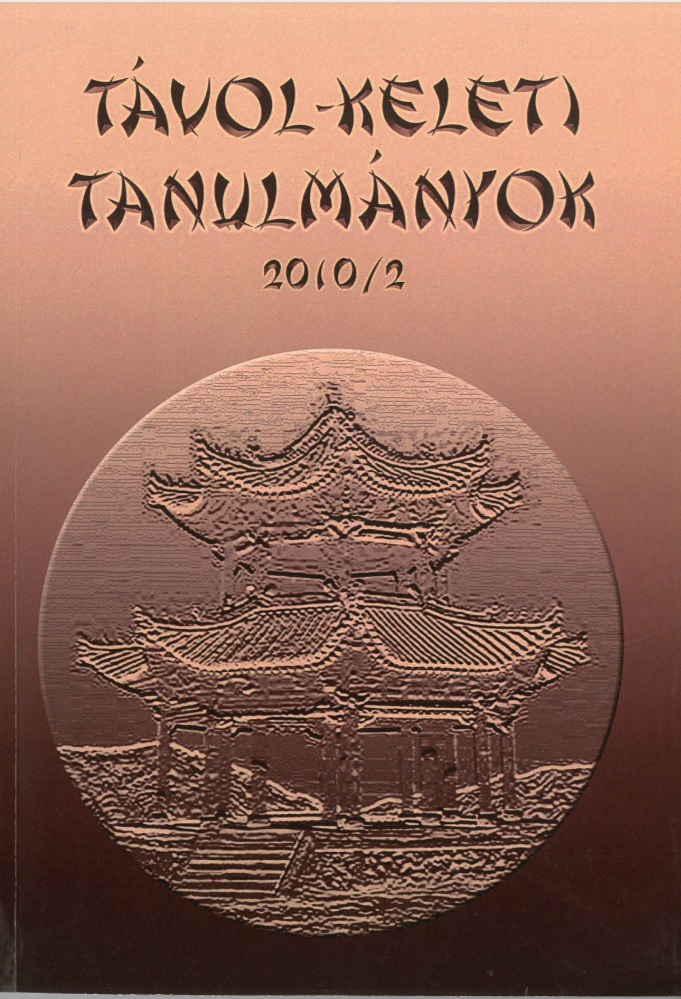The „straight names” (zheng ming) and correctness of perfect man (junzi): Konfuciánus nyelvértelmezés és értékelmélet
Published 2011-09-18
How to Cite
Copyright (c) 2013 the author(s)

This work is licensed under a Creative Commons Attribution-NonCommercial 4.0 International License.
Abstract
Confucius provided Chinese thinking with „humanistic” foundation. He formulated some of its fundamental concepts: the Way of Heaven (tiandao), the Mandate of Heaven (tianming) virtue/charisma (de), perfect man/superior man (junzi), humaneness/benevolence (ren), ritual ceremonies (li), equity/righteousness (yi), respect for parents and fraternal duty (xiao ti) and the straight names. In insisting on the zheng ming, Confucian thinkers (first and foremost Mencius and Xunzi) advocated not only the establishment of a social order in wich names and ranks are properly regulated, but also the correspondence of names and actions (wei), or, in its more philosophical aspect, the correspondence of name and actuality (shi). The concept of straight names was a common topic of discussion among ancient Chinese thinkers. This has been a perennial theme in the Confucian school, as well as in nearly all other schools. The meaning of the theory zheng ming is that ranks, duties, and functions must correspond to their names, and must be fully transferred into action. Only in this case can a name (ming) be considered „straight” or „correct” (zheng). The interest of ancient Confucian thinkers in the question of supremacy and virtuousness or charisma was predominant. The basic rule of Confucian theory is „humane government”, the government of the true king (wang), who rules through the example of virtue. By the principle of equity even the despot can be useful. This tension between kingliness and despotism has always subsisted in the minds of Confucian thinkers. Speaking about the theory of the correspondence of names and actualities, the Confucian thinkers emphasized the significance of social harmony, government „for” the people, cultivation of virtue, but the practical Legalists, like Hanfeizi, put the emphasis of power control. For them this theory was a technique for regimentation, the Legalists were interested in the accumulation of power and „uniformity of thought”.
